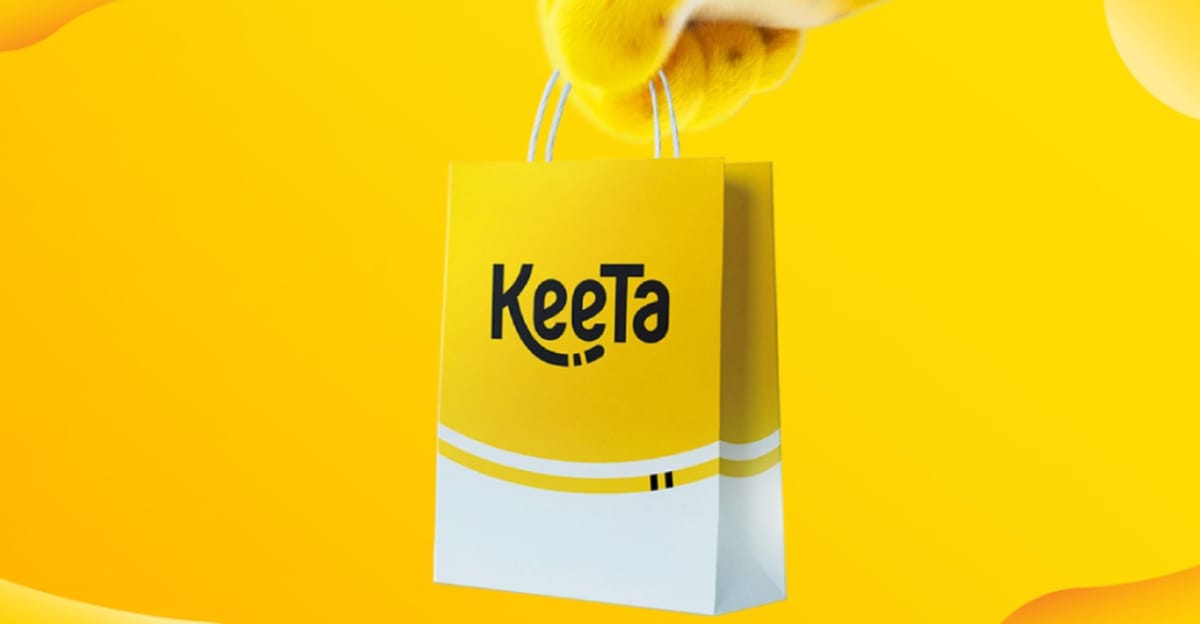Meituan's KeeTa becomes Hong Kong's second-largest food delivery platform
Since arriving in Hong Kong, KeeTa has become the city's second-largest food delivery platform.

A few minutes every morning is all you need.
Stay up to date on the world's Headlines and Human Stories. It's fun, it's factual, it's fluff-free.
The backstory: Ever since COVID locked everyone down in their homes, delivery apps have really taken off. Especially when it comes to grocery and food delivery. Meituan, a major Chinese tech and shopping giant, launched its sister food delivery app KeeTa in Hong Kong last May. It first kicked off in Mong Kok and Tai Kok Tsui, and the positive response led to a swift expansion to Sham Shui Po and Yau Tsim Mong a month later. Before this, Foodpanda and Deliveroo dominated domestically with 64% and 36%, respectively, of the market share, while Uber Eats pulled out of Hong Kong at the end of 2021, leaving around a 5% market share up for grabs.
The development: Since arriving in Hong Kong, KeeTa has become the city's second-largest food delivery platform, grabbing a 37% share of the local market in December, according to Measurable AI. Though that was a bit behind Foodpanda at 42%, KeeTa outpaced Deliveroo’s 20%. What's interesting is that KeeTa achieved this quick success even before covering the entire territory.
In overall market share, KeeTa was still behind its competitors last month at 21%, compared to Deliveroo at 25% and Foodpanda at 54%. But those stats include pickup and grocery orders, which KeeTa doesn’t offer. Those other services made up more than a third of Foodpanda’s and Deliveroo’s total orders.
As for KeeTa's strategy, Meituan put in a lot of effort during its Hong Kong launch, from aggressive hiring to subsidies. With more than 1.3 million downloads and a consistently high daily download rate, KeeTa is aiming for steady and rapid expansion in the long term.
Key comments:
"Hong Kong's food delivery market developed rapidly amid the pandemic, but we still received various demands from customers, restaurants and delivery men. KeeTa will meet customers' demands' for high-quality takeout, help restaurants expand their customer base as well as bring flexible and rewarding work opportunities for delivery men," said a KeeTa spokesman last May.
“Given that there is considerable competition, as soon as subsidies wane – customers are likely to switch platforms if they can get the food delivery at a cheaper cost somewhere else,” said Kai Wang, a senior equity analyst for Morningstar Asia. “Meituan has other issues it needs to fix within other divisions before it expands internationally, given that they will have to initially incur heavy cash burn in those other markets due to heavy subsidies.”
“I’m not very optimistic about Meituan’s expansion in Hong Kong,” said Shawn Yang, managing director of Blue Lotus Research Institute, to CNBC. “I don’t think the market is large enough where Meituan will invest a lot of resources into.”




Comments ()